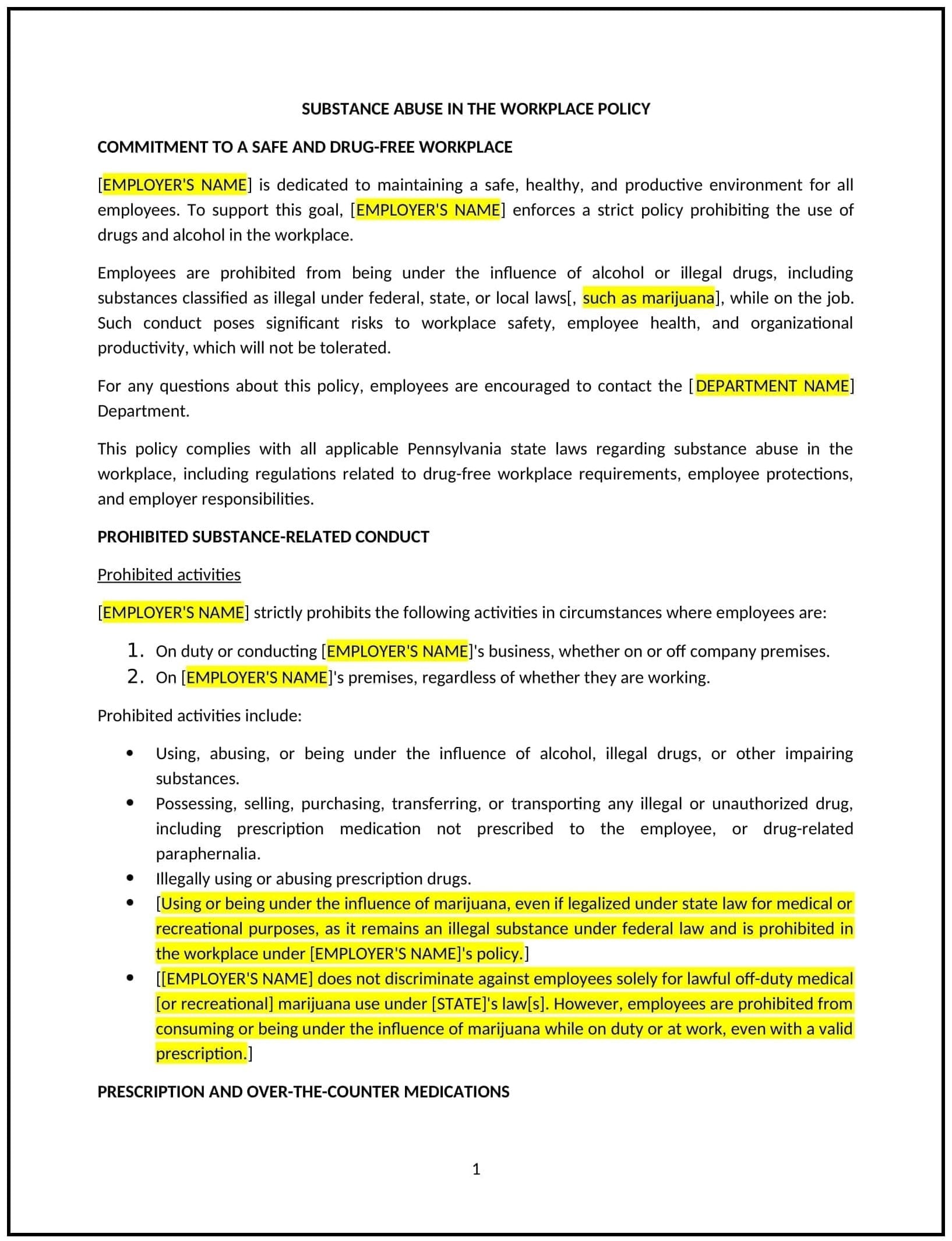Substance abuse in the workplace policy (Pennsylvania): Free template
Got contracts to review? While you're here for policies, let Cobrief make contract review effortless—start your free review now.

Customize this template for free
Substance abuse in the workplace policy (Pennsylvania)
This substance abuse in the workplace policy is designed to help businesses in Pennsylvania address the use of alcohol, drugs, and other substances that may affect workplace safety and productivity. By establishing clear guidelines for prevention, testing, and support, this template promotes a safe and compliant work environment.
By using this template, businesses can minimize risks, enhance employee well-being, and align with Pennsylvania and federal workplace regulations.
How to use this substance abuse in the workplace policy (Pennsylvania)
- Define prohibited behaviors: Clearly specify the substances and activities that are prohibited in the workplace, such as alcohol consumption, drug use, or being under the influence while on duty.
- Include testing procedures: Outline protocols for drug and alcohol testing, including when tests may be conducted, such as pre-employment, random, or post-incident testing.
- Offer support resources: Provide information about resources available to employees, such as Employee Assistance Programs (EAPs) or counseling services.
- Address disciplinary actions: Specify consequences for violating the policy, such as warnings, suspension, or termination, while adhering to applicable laws.
- Reflect Pennsylvania-specific considerations: Tailor the policy to address state-specific laws and regulations regarding workplace drug testing and substance abuse programs.
Benefits of using a substance abuse in the workplace policy (Pennsylvania)
A well-structured substance abuse policy supports safety and productivity. Here's how it helps:
- Promotes workplace safety: Reduces the risk of accidents or injuries caused by substance use on the job.
- Enhances productivity: Addresses behaviors that may negatively impact employee performance and overall workplace efficiency.
- Supports compliance: Aligns with Pennsylvania and federal regulations regarding workplace drug and alcohol policies.
- Encourages employee well-being: Provides access to resources and support for employees dealing with substance abuse.
- Reflects local needs: Addresses Pennsylvania-specific regulations and industry standards for workplace safety and substance management.
Tips for using a substance abuse in the workplace policy (Pennsylvania)
- Communicate the policy: Share the policy with employees during onboarding and ensure it is accessible for reference.
- Provide training: Train managers and supervisors on recognizing signs of substance abuse and implementing the policy fairly.
- Maintain confidentiality: Ensure that all testing, reports, and disciplinary actions related to substance abuse are handled discreetly.
- Encourage early intervention: Promote the use of available resources, such as counseling or treatment programs, to support employees before issues escalate.
- Review periodically: Update the policy to reflect changes in Pennsylvania laws, workplace safety requirements, or organizational goals.